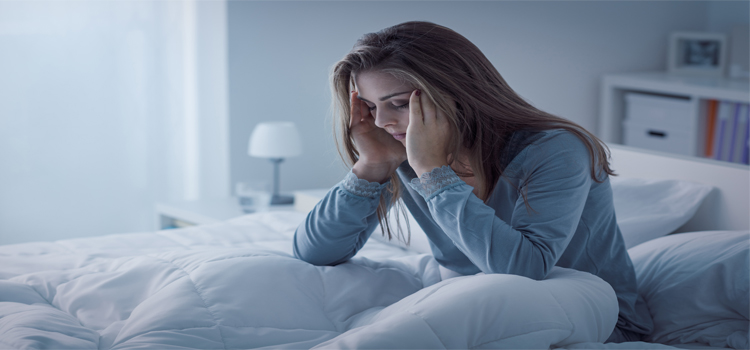he National Sleep Foundation says 30 to 40 % of American adults experience insomnia each year. If you have trouble sleeping, wake up in the night or feel tired waking up in the morning, you could be a victim of insomnia, too. Occasional sleeplessness, unhealthy habits before bed, and irregular sleep schedule do mess up a good night’s sleep. That’s not insomnia. However, if your sleep problems are frequent and have prolonged over a few months, that’s insomnia. To curb this problem, your doctor will first look into the causes of insomnia to present a solution.
What are these causes exactly? Here’s what you must know to improve your sleeping habits:
1: Pregnancy
Having trouble sleeping during pregnancy is common. Many women experience insomnia in their third trimester. Various factors contribute to sleeping troubles during pregnancy. These include hormonal changes, anxiety about labor, physical discomfort, the need to use the bathroom frequently, etc.
A good thing is after the delivery, you will be able to sleep fine. During these 9 months, take extra care of your sleep routine. Improve physical comfort by using pillows. Invest in the maternity pillows that are designed to provide comfort to pregnant women.
2: Medical Condition
A handful of health conditions cause sleep disorders. Sleep apnea is one of them. It makes you suddenly stop breathing during sleep. A scientific review said 38% of people with sleep apnea experience insomnia.
The second most common medical condition is restless leg syndrome. It makes your legs switch. Since moving in the legs become worse at night, this could disrupt your sleep.
Other common physical ailments that cause insomnia include acid reflux, asthma, hyperthyroidism, and neurological disorders like Parkinson’s disease that affect brain health and memory.
3: Medication
Insomnia is a side effect of certain medications as well. In case you are struggling to sleep for months and months, perhaps a prescription drug you are on could be the cause.
Here is a list of medication that is among the causes of insomnia:
- SSRIs
There are drugs used for treating depression and anxiety.
- Blood Pressure Medication
Alpha and beta-blockers are normally given to treat high blood pressure. They reduce the REM sleep and melatonin levels in the body.
- Steroids
Some medical conditions are only treated with steroids. If you are taking steroids because of that, you are likely to experience sleep troubles.
Anyone taking drugs mentioned above must talk to their physician about insomnia. The doctor might change your medication or suggest a routine to improve the sleep overnight.
4: Menopause
Women in their menopause often complain about insomnia. The decline estrogen levels and hot flashes in the middle of the night disrupt the sleep. Unfortunately, this lack of sleep impacts their ability to function the next day.
If are jolted by hot flashes and you find your pajamas or sheets sweaty, it’s because of the menopause alright. See your doctor for a solution. They will prescribe you a medication to reduce the hot flashes. Some sleep tips for women with menopause include reducing the air conditioning temperature. You will sleep better in a cold room.
5: Blue Light
Don’t underestimate the power of blue light. It’s one of the most neglected causes of insomnia. It’s said at many places to turn off electronics and mobile devices emitting blue light an hour before bed-time. This light has the power to suppress melatonin – the sleep hormone. Some experts even say watching TV during or after dinner is enough to reduce the melatonin levels.
It’s best to improve your kids sleeping habits early on so they develop a routine of switching off electronics hours before sleeping. This will make them fall asleep faster.
It is harder to stop using gadgets in today’s tech times. Therefore, if this light disturbs your sleeping routine, wear glasses that block blue lights. Even if you are using your phone 5 minutes before bedtime, the light won’t affect your sleep.
6: Anxiety and Depression
Anxiety and depression are definite causes of insomnia. Anxiety keeps you awake for hours, staring at the ceiling worrying about something. Sometimes, it’s not evident what’s keeping you awake. The underlying reason is anxiety indeed but you are unable to pinpoint the event triggering this anxiety. In such a situation, Cognitive Behavioral Therapy for Insomnia helps address the root of the anxiety.
Symptoms of depression like sadness, zero motivation, low energy, or loss interest can be linked with insomnia. In some cases, insomnia triggers depression as well. Don’t worry, this can be treated so do talk to your psychiatrist about it.
7: Frequently Naps
Half-hour power naps are great for boosting the immunity system but too many naps make you lie awake in bed. Most seniors are guilty of excessive napping. They could be watching TV and taking a nap. Instead of taking naps in the afternoon, try exercising or busy yourself with a new activity.




